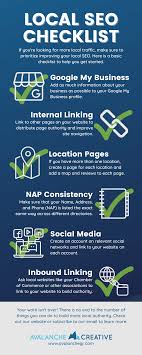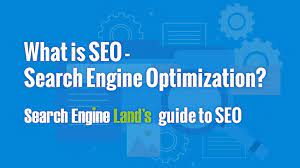Unlocking the Potential of Google Local SEO: Enhancing Your Business Visibility Locally
The Power of Google Local SEO
In today’s digital age, having a strong online presence is crucial for businesses looking to attract local customers. Google Local SEO (Search Engine Optimization) plays a vital role in helping businesses appear in local search results and connect with potential customers in their area.
What is Google Local SEO?
Google Local SEO focuses on optimising your online presence to improve visibility in local search results on Google. When users search for products or services near them, Google shows relevant businesses based on their location. By implementing local SEO strategies, businesses can increase their chances of appearing in these local search results.
The Benefits of Google Local SEO
Increased Visibility: By optimising your website and online profiles for local keywords and information, you can improve your visibility in local search results.
Targeted Traffic: Local SEO helps attract potential customers who are specifically searching for products or services in your area, increasing the likelihood of converting them into customers.
Build Trust: Appearing in local search results enhances your credibility and trustworthiness among local customers, as they are more likely to choose businesses that show up prominently in their searches.
Key Strategies for Google Local SEO
To make the most of Google Local SEO, consider implementing the following strategies:
- Optimise Your Google My Business Profile: Ensure that your business information is accurate and up-to-date on Google My Business, including your address, phone number, and business hours.
- Create Local Content: Produce content that is relevant to your local audience, such as blog posts about events or news in your area.
- Get Listed in Online Directories: Ensure that your business is listed accurately on popular online directories like Yelp, Yellow Pages, and TripAdvisor.
- Encourage Customer Reviews: Positive reviews from satisfied customers can boost your credibility and help improve your ranking in local search results.
In Conclusion
In conclusion, Google Local SEO is a powerful tool for businesses looking to target local customers and enhance their online visibility. By implementing effective local SEO strategies, businesses can connect with potential customers in their area and drive more foot traffic to their physical locations or website. Investing time and resources into Google Local SEO can yield significant benefits for businesses seeking to grow their presence locally.
Top 5 Benefits of Google Local SEO for Boosting Your Business Visibility
- Increased visibility in local search results on Google
- Targeted traffic from users searching for products/services in your area
- Enhanced credibility and trust among local customers
- Cost-effective way to reach a specific geographic audience
- Opportunity to stand out against competitors in local searches
Challenges of Google Local SEO: Navigating Competition, Maintenance, Algorithm Changes, Visibility, and Reputation
- Increased competition for local search rankings
- Time-consuming to consistently update and maintain business information across multiple platforms
- Dependence on Google’s algorithm changes which can impact search rankings
- Difficulty in standing out among other local businesses in the same industry
- Potential negative impact from fake or negative reviews that affect reputation
Increased visibility in local search results on Google
One of the key advantages of Google Local SEO is the significant boost in visibility that businesses can achieve in local search results on Google. By optimising their online presence for local keywords and information, businesses can enhance their chances of appearing prominently when users search for products or services in their area. This increased visibility not only helps businesses stand out among local competitors but also ensures that they are more easily discovered by potential customers who are actively seeking relevant offerings nearby. Ultimately, improved visibility in local search results can lead to higher traffic, increased brand awareness, and greater opportunities for customer engagement and conversions.
Targeted traffic from users searching for products/services in your area
One significant advantage of Google Local SEO is the ability to attract targeted traffic from users actively searching for products or services within your geographical area. By optimising your online presence for local search terms, you increase the likelihood of appearing in search results when potential customers are looking for offerings in your vicinity. This targeted approach not only drives relevant traffic to your business but also increases the chances of converting these local searches into valuable customers, ultimately boosting your business’s visibility and revenue within your community.
Enhanced credibility and trust among local customers
One significant advantage of Google Local SEO is the enhanced credibility and trust it builds among local customers. When businesses appear prominently in local search results, it signals to potential customers that the business is established and relevant to their needs. By optimising their online presence for local searches, businesses can showcase their commitment to serving the local community, which in turn fosters trust and confidence among local customers. This increased credibility can lead to higher conversion rates and long-term customer loyalty, ultimately benefiting the business in building a strong local customer base.
Cost-effective way to reach a specific geographic audience
Google Local SEO offers a cost-effective way to target a specific geographic audience. By optimising your online presence for local search, businesses can efficiently reach potential customers in their vicinity without incurring high advertising costs. This targeted approach ensures that marketing efforts are focused on the right audience, increasing the chances of attracting local customers who are actively seeking products or services within their geographical area. Ultimately, Google Local SEO provides businesses with a budget-friendly method to enhance visibility and connect with a specific local audience effectively.
Opportunity to stand out against competitors in local searches
With Google Local SEO, businesses have the opportunity to stand out against competitors in local searches. By optimising their online presence for local keywords and information, businesses can improve their visibility in local search results, making it easier for potential customers to find them over competitors. This competitive edge allows businesses to attract more targeted traffic from local searches, increasing their chances of converting leads into loyal customers. Embracing Google Local SEO gives businesses the advantage of distinguishing themselves in a crowded marketplace and solidifying their position as a top choice for local consumers.
Increased competition for local search rankings
One significant drawback of Google Local SEO is the increased competition for local search rankings. As more businesses recognise the importance of local SEO in reaching nearby customers, the competition to secure top positions in local search results intensifies. This heightened competition can make it challenging for smaller or newer businesses to rank prominently, as established competitors with larger resources may dominate the local search landscape. Businesses must navigate this competitive environment strategically by implementing innovative tactics and consistently refining their local SEO strategies to stand out amidst the growing competition for visibility in local searches.
Time-consuming to consistently update and maintain business information across multiple platforms
One significant drawback of Google Local SEO is the time-consuming nature of consistently updating and maintaining business information across multiple platforms. Ensuring that details such as address, phone number, business hours, and other relevant information are accurate and up-to-date on various online directories and profiles can be a laborious task. This process requires regular monitoring and adjustments to reflect any changes in the business, which can be challenging for businesses with limited resources or time constraints. Failure to keep information consistent across platforms may lead to confusion among customers and potentially harm the business’s online visibility and reputation.
Dependence on Google’s algorithm changes which can impact search rankings
One significant drawback of Google Local SEO is the reliance on Google’s ever-evolving algorithm, which can have a direct impact on search rankings. As Google frequently updates its algorithms to enhance user experience and combat spam, businesses implementing local SEO strategies may find themselves at the mercy of these changes. Fluctuations in search rankings due to algorithm updates can potentially disrupt established SEO efforts and require constant adaptation to maintain visibility in local search results. This dependence on Google’s algorithm changes highlights the need for businesses to stay informed and agile in their approach to local SEO to mitigate the risk of sudden drops in search rankings.
Difficulty in standing out among other local businesses in the same industry
One significant drawback of Google Local SEO is the challenge of standing out amidst a sea of local businesses operating in the same industry. With numerous competitors vying for visibility in local search results, it can be difficult to differentiate your business and capture the attention of potential customers. This saturation can lead to increased competition for top rankings, making it a constant struggle to maintain a prominent position in local search listings. Businesses must devise innovative strategies and compelling content to overcome this obstacle and carve out a unique identity that resonates with their target audience.
Potential negative impact from fake or negative reviews that affect reputation
One significant drawback of Google Local SEO is the potential negative impact that can arise from fake or negative reviews, which have the power to tarnish a business’s reputation. Inaccurate or malicious reviews can mislead potential customers and deter them from engaging with a business, ultimately affecting its credibility and trustworthiness. Managing and addressing fake or negative reviews can be challenging, requiring businesses to invest time and effort in reputation management to mitigate the damage caused by such feedback.

